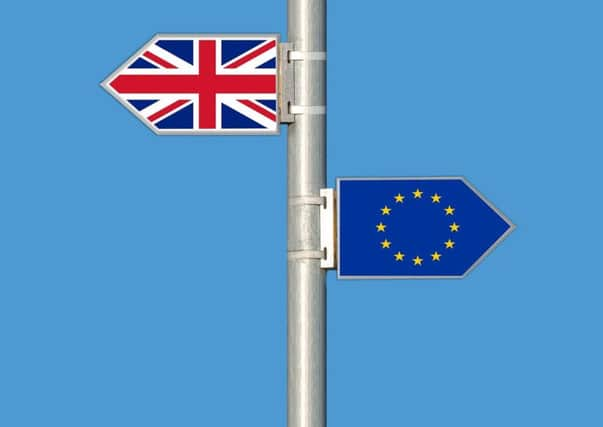EU deal must respect lines and pillars


There have been endless battlegrounds as those for whom Brexit was not their choice fought against the Prime Minister’s clear red lines, which she set in 2017 and has robustly stuck to throughout negotiations.
Brexiteers have had to compromise, but just about everyone in the Conservative Party agrees that the direct order issued by the British people to their Government in the referendum on June 23, 2016, must be delivered.
Advertisement
Hide AdAdvertisement
Hide AdThe Prime Minister set out very firmly her four red lines – that we should take back control of our borders, our laws, our money and be free from European court jurisdiction.
She set out a generous spirited solution for British citizens living abroad and EU citizens in the UK, and was clear that security relationships were too important to become a bargaining chip. Her whole tone was of wanting sincere co-operation and constructive, respectful engagement.
Perhaps one of the reasons I am a Brexiteer is that I have always found the EU to be dominating and inconsiderate, and to show a lack of respect to nation states.
It has moved from a Common Market towards a political union whose goal is a single state of Europe. I don’t believe that such a project is possible.
Advertisement
Hide AdAdvertisement
Hide AdStandardisation for economic mutual advantage has merit within the EU, but to the detriment of those outside wishing to trade, and in inflated prices for EU citizens.
The trigger to start the UK’s departure from the EU was set when MPs voted by a majority of 384 to trigger Article 50. This meant we had two years to sort out the future relationship with the EU.
This was always going to be a huge exercise because the whole of Government has to get into a new gear, with new systems in place and business logistics designed.
In my opinion, there has been a lack of focus on some of these areas from some quarters, and this has made some parts of the business community nervous as to whether all the right systems would be in place for March 29, 2019.
Advertisement
Hide AdAdvertisement
Hide AdSo I was pleased to hear the Prime Minister confirm last Friday that she understands that being prepared for any outcome is vital. She stated that preparedness must be stepped up for the WTO outcome. Having an insurance policy to fall back on, just in case a fuller deal is not ready, is imperative.
The PM also set out her White Paper proposals. This is the opening salvo for the deal she hopes to strike with the EU to cement our trading and other policy relationship.
I have some concerns as to whether this first offer can achieve what the British electorate voted for, and it seems to give up on red lines the PM set so clearly and continues to reiterate.
But the EU also has its own red lines, or pillars, which are its beating heart. These are four indivisible principles of free movement of goods, services, capital and labour. It has always been clear that if we plan to stop free movement, then single market access would be impossible.
Advertisement
Hide AdAdvertisement
Hide AdThe white paper is only the start of the process of coming to a final deal that can respect the UK’s red lines and the EU’s four pillars, and find a mutually beneficial direction. Whatever the final deal, there must be reciprocity and a fair, positive relationship framework.
And if no deal can be achieved that works for everyone, the PM will have made certain that the UK is prepared to leave in March 2019 on WTO terms. No doubt if that were to be the outcome, the discussions for a free trade deal would continue.
I want the UK to have a long-term, positive relationship with our EU neighbours far into the future – and as I always say, we are only leaving the political union of the EU, not the continent of Europe.